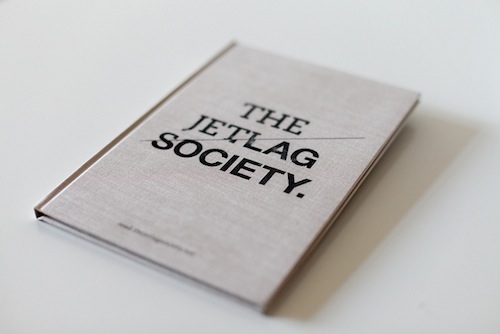Spend the last two evenings at the print/pixel international conference on the current shifts in print and online media production (warning: most dysfunctional conference website ever) organized by the research project Communication in a Digital Age at the PZI in Rotterdam. Most of the discussions were (not surprisingly) on business models for print publications and the role of print journalism in the current technological and economic climate. Unfortunately the whole thing has not really resulted in much new insights (& all the speakers i really wanted to hear did not show up).
At times the discussion reminded me very much of the discussions around file sharing of music from a couple of years ago. At that time the music industry was claiming that they needed to be in control of distribution (and thus eliminate file sharing) because they had a god-given task to do the (expensive) discovery of new artists and transforming some of them into stars, which could only be done as long as they were able to extract enough surplus from distributing recorded music.
Now the print people are structurally repeating the same argument: self distribution via the internet must be limited because (small) publishing houses use parts of their revenue in order to filter the quality texts from the much bigger reservoir of general text production. The argument goes that in order for this quality filter to survive, authors must continue to publish through publishers instead of relying on internet distribution.
Of course this line of reasoning is not only stupid but also incredibly arrogant. If i was a publisher i would rather invest my energies into figuring what i have to offer to authors and readers once the perfect shitstorm of cheap generic electronic paper reading devices and wide available of e-books on the file-sharing platforms breaks loose. judging from the discussions at print/pixel it appears that very few people are seriously preparing for this inevitable scenario.
The entire event reminded me of a passage in the first half of David Foster Wallace’s ‘Infinite Jest‘ (which i have almost finished reading by now). It describes a fictional future scenario in which the digital revolution re-structured the economics of entertainment (=news) in a completely different way from the situation as it was discussed at print/pixel. When it was published in 1996 Infinite Jest was situated in a near future that roughly corresponds with the current present (predictably wikipedia has an entire section of the ‘infinite jest’ article devoted to the question which year in the book corresponds to which year in the Gregorian calendar).
In the scenario described in Infinite Jest, television has been replaced by the a entertainment mechanism for entertainment products (called cartridges) called InterLace. InterLace is also the name of the company that has complete control (i.e a monopoly) over the distribution of entertainment cartridges. People pay for the on demand consumption of cartridges (and those who can’t afford it re-watch old cartridges all the time). In the book the emergence of InterLace is described in a term paper written by the main character Hal Incandenza, a marihuana addicted junior tennis player (pages 410-418 in the back bay 10th aniversary paperback edition).
According to Hal’s paper the shift from Network television to cable television and then to InterLace as the dominant entertainment medium started when advertisements on network television got so repulsive that people viewers abandoned network television in favor of cable television which offered more choice and less advertisement. While the cable TV stations rested in their new found popularity, a video rental chain owner called Noreen Lace Forché bought up the production facilities of the bankrupt TV networks and used them to produce content for InterLace which offers pre-produced on-demand entertainment. From the consumer perspective the appeal of InterLace over cable television is that one has complete control over the choice of programming (i.e one can select from a huge library) without any advertisement. In the scenario described in infinite Jest this is a business proposition that people are happy to pay, which not only puts broadcast and cable television out of business but also eliminates most of the advertising industry.
Now the obvious difference with the the current reality is today there is no monopoly provider of entertainment (or news) products that can afford to set a price for access. Instead we have the open internet offering free access to almost all entertainment (or news) and one of the very few business models that offers some relief to producers is online advertisement. Makes me wonder if we would not be better of in the infinite jest scenario, paying for our entertainment and news and being spared of the advertising onslaught…

